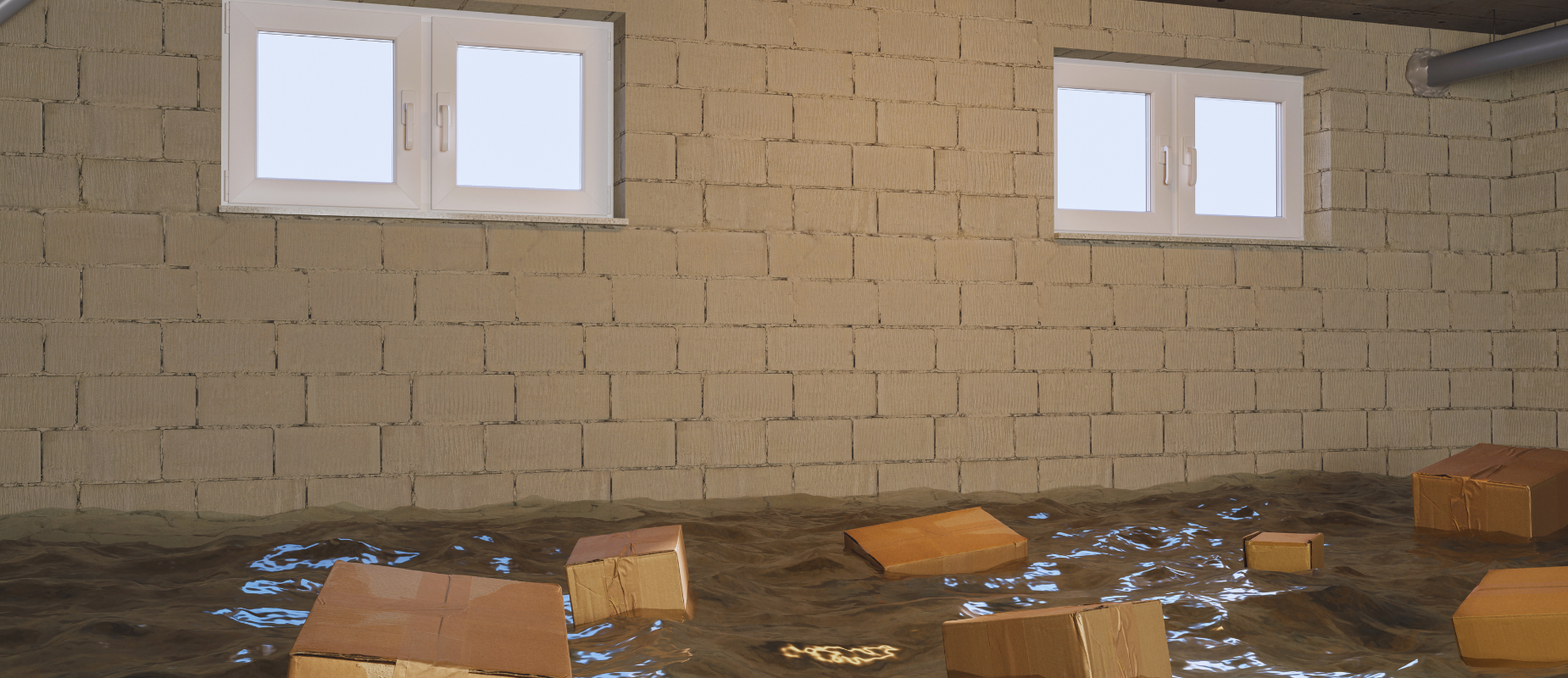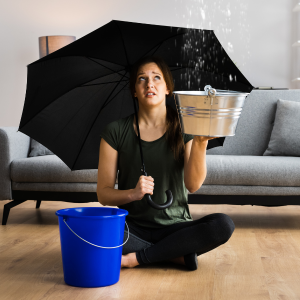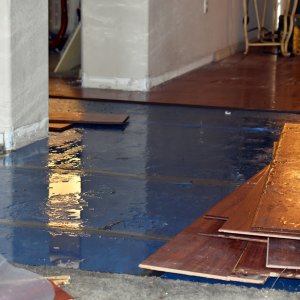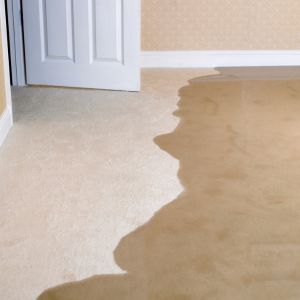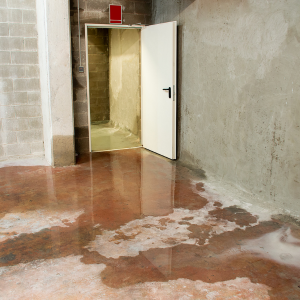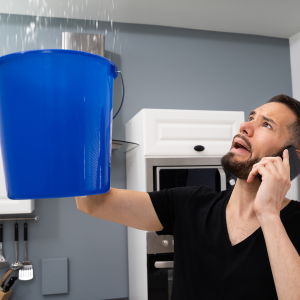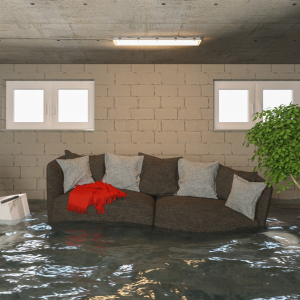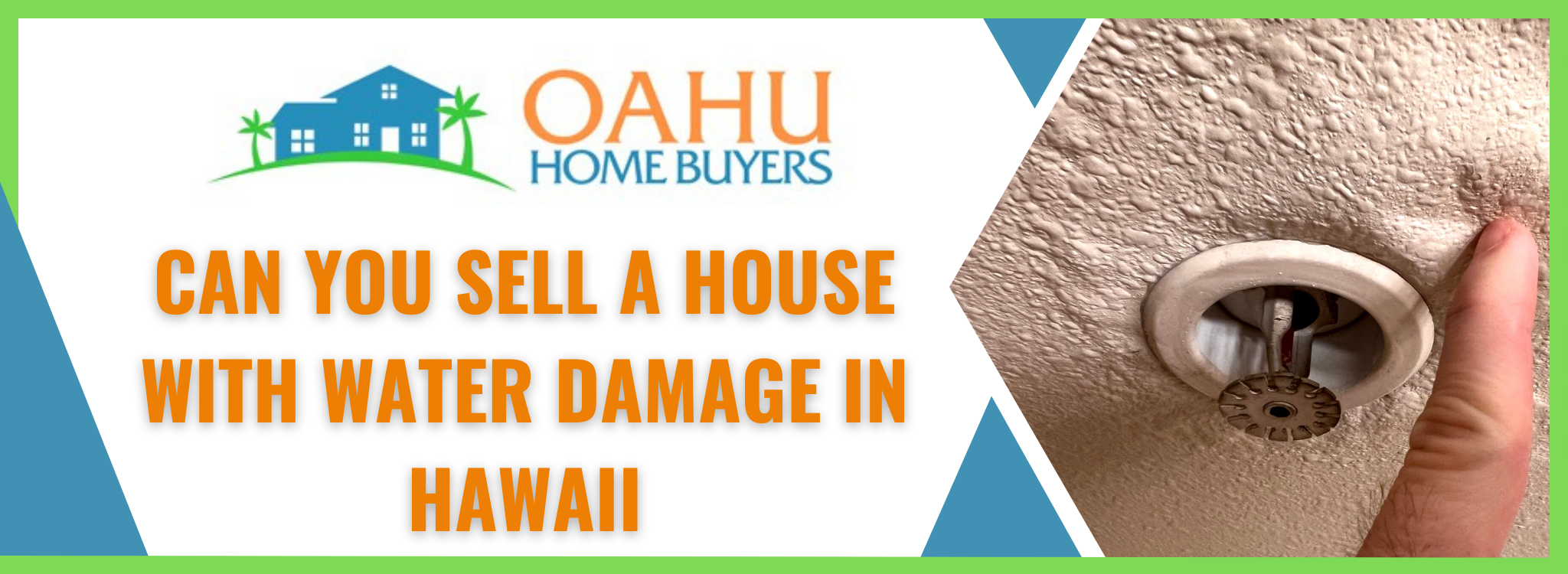
Can You Sell a House With Water Damage in Hawaii?
Yes, you can sell a property in Hawaii with water damage. While it may feel daunting, it is a doable option for sellers. Familiarizing yourself with Hawaii’s property laws and the current market climate is essential. Many homeowners choose to list the property “as-is,” forgoing repairs, but you must still provide the mandated disclosures about past or ongoing water intrusion to follow state law. Whether the damage is from a leak, flood, or another source, you’ll need to convey the details in the property disclosures.
What are the Impacts of Water Damage on Property Value?
Water damage can affect the value of your home. When conducting a home appraisal in Hawaii, water damage will likely reduce the price. Fixing a house in Hawaii can be expensive due to the local weather and supplies. Watching Hawaii’s property market trends and understanding how water damage affects value might help you decide whether to fix it or sell it as is.
How Does Water Damage Affect Buyer Interest?
Prospective buyers in Hawaii routinely pull back at any sign of water-related issues. Here, inspections routinely reveal damage, often long concealed in the tropical climate. Once a listing shows any hint of leak stains, rust, or warped surfaces, buyers jump straight to repair estimates when making their offers. Knowledge of this mentality allows sellers to counter their jitters before negotiations even start. When you show you’re informed and ready to act, buyer comfort levels rise, and the hawk-eyed low balls soften.
Legal Requirements for Disclosing Water Damage
Hawaii’s seller disclosure regime requires sellers to reveal any known water intrusion or moisture-related damage, no exceptions. Ignoring this obligation may lead to lawsuits that linger long after the sale—far less hassle to document the damage, the cause, and the repairs while the dust is still settling. Brush up on the details of Hawaii Revised Statutes, and the disclosure form in front of you becomes more a tool than a burden.
What Must You Disclose According to Hawaii Law?
Governor-approved residential property disclosure form. Section that specifically addresses water damage. Give the date of the damage, the cause (if known), and what repairs the seller performed. If repairs aren’t fully complete, disclose that, along with any estimates you have. Provide the name of the tradesman who conducted the work, or the receipts and warranties that back up the claim, and zip the corrective work on time to calm, not inflame, the buyer’s instinct to pull that inspection report out and lean on it. Also, if you need to sell a house with asbestos, make sure to disclose any known presence of asbestos materials and provide related inspection or abatement documentation to stay compliant with state regulations.
How Does Disclosure Impact the Selling Process?
Hawaii’s seller disclosure regime requires sellers to reveal any known water damage , no exceptions. Ignoring this obligation may lead to lawsuits that linger long after the sale—far less hassle to document the damage, the cause, and the repairs while the dust is still settling. Brush up on the details of Hawaii Revised Statutes, and the disclosure form in front of you becomes more of a tool than a burden.
Why Consider Selling Your Home “As-Is” in Hawaii?
Selling a home your Hawaii property “as-is” makes sense if you want a quick, no-fuss sale. You show the home in its current shape and skip repairs. Upfront expenses for fixing water-damage drywall, for example, do not eat into your equity, and estimates don’t pull your attention away from the listing.
When is Selling “As-Is” the Right Choice?
Sometimes an “as-is” sale is practical:
- Buyer negotiation with water damage: Water damage can overwhelm minor repairs, and an “as-is” option speeds the deal.
- Hawaii coastal property issues: Homes on the coast droop from constant salt damage. Selling without repairs can avoid draining mitigation expenses.
- Hawaii housing market trends: If buyer interest is soaring, a house needing TLC can still move fast and fetch a fair, no-fix price.
- Understanding Hawaii buyer expectations: Several island buyers specifically seek renovation projects. Price it right, and “as-is” is truly appealing.
- Pricing strategy for damaged homes: Tagging the right “as-is” price draws viewers. Decide on the fair-market discount, and the property invites interest, even in need of help.
What Are the Potential Challenges of Selling Without Repairs?
A no-fix sale is no stroll on the beach:
- Renovation costs in Hawaii: Necessary repairs can chill an offer, discouraging bidders or lowering sale price.
- Buyer inspection in Hawaii: Home inspectors in Hawaii dig. If an issue shines up during the report, i.e. mold or leaks, buyer goodwill shrinks.
- Legal requirements for selling a house in Hawaii: Hawaii demands a written disclosure and narrative to the buyers. Showing existing damage up front keeps a clear legal path.
- Hawaii flood zones: Properties here may face a long sales cycle because risk-based premiums have jumped.
- Potential buyer concerns in Hawaii: Prospective owners regularly flag hidden repair expenses.
Repairing Water Damage Before Sale: Is It Worth It?
Before diving in, weigh these extras: A visible repair can streamline a showing, lift market comps, and pull a credible appraisal number. Water stains and mold, however, can snag buyer focus. Hawai‘i-based emergency contractors stand ready for immediate response.
What Are the Costs Involved in Water Damage Repairs in Hawaii?
Knowing the costs in Hawaii is important:
- Hawaii building codes: Every fix must slot inside authorized specs—or it may trigger enforcement fines later.
- Insurance claims for water damage: Confirm prior to work whether the current policy will underwrite the lift.
- Assessing water damage impact: A disciplined walk-through should zero in on breach size and a soft budget ceiling.
- Mold remediation in Hawaii: In Hawaii, mold not only creates health alerts but can also shrink buyer bids, so a preemptive job is a business lost.
How Can Repairs Enhance Property Appeal?
Making simple repairs can significantly boost the appeal of a home:
- Benefits of fixing water damage: Fast fixes contain rot and mold, making the home safer and more pleasant.
- Home staging with damage: A freshly repaired house presents a tidy canvas and feels more inviting.
- Curb appeal for damaged homes: Fixing holes, peeling paint, or broken tiles creates a pleasant first sight.
- Tips for selling damaged houses: Solicit local agents for the best marketing strategy for a house needing work.
- Real estate investment in Hawaii: Minor to moderate repairs in the Islands can widen the buyer pool, possibly raising the final sale price.
Should You Sell to a Cash Buyer in Hawaii?
What Are the Advantages of Selling Quickly for Cash?
Selling your home fast for cash in Hawaii can streamline the process and deliver prompt cash in hand. A single buyer means no lingering approvals, letting sellers move sooner. In a market that can shift week-to-week, that timing advantage is enormous. Even a home swayed by damage can attract offers when the sale is fast.
Benefits of a cash approach include:
- Quick Sales: Deals commonly wrap up in a week or less.
- No Loan Worries: Eliminates waiting for lender checks and reduces stress.
- Buying ‘As Is’: Buyers often purchase properties in their current state without requiring sellers to make repairs.
- Fewer Fees: By choosing this route, you might avoid certain expert fees and some closing costs, translating into more cash in your pocket.
Cash offers for properties needing repairs can attract attention, particularly when a home is in poor condition.
How Do Cash Buyers Handle Damaged Properties?
Cash buyers routinely create flexible plans for homes that require work. Their focus is on properties with deferred maintenance, which means sellers can avoid the hassle of coordinating repairs. When they make an offer, they often overlook certain defects and instead evaluate the home on its future potential.
They typically:
- Checking Damage: Determining how various issues influence the overall property value.
- Planning Repairs: Including anticipated repair expenses in their pricing strategy.
- Quick Buys: Finalizing the sale efficiently while foregoing seller-controlled renovations.
In Hawaii, this method serves owners of damaged homes seeking a straightforward sale without delays.
Preparing Your Home for Sale Despite Water Damage
What Steps Can You Take to Maximize Sale Potential?
To strengthen your property’s market value, even with existing water damage, you can take a few decisive steps:
- Check the Damage: Discovering the root of the water damage enables informed management decisions.
- Fix Key Issues: Prioritize fixes that pose a barrier to typical buyers to boost overall confidence.
- Boost Curb Appeal: Tidy up landscaping, paint a door, or swap light fixtures for a more up-to-date look.
- Stage the Inside: Arrange the rooms so traffic flows smoothly and highlight the space, light, and architectural details that make your home special.
- Set a Fair Price: Price for today, factoring in any lingering repair issues and up-to-date neighborhood comparables.
- Market Smartly: Use targeted online ads, local social media groups, and engaging walkthrough videos to connect with the buyers most likely to love what you offer.
Completing these steps won’t just make the sale easier; it pushes up value and pulls in buyers who believe your home is the right one.
How Important is Curb Appeal for Damaged Homes?
Curb appeal never takes a holiday, not even for a home that leaked. The mind-set buyers bring when they pause in the driveway is a strong one. Tidy landscaping, a pressure-washed walkway, and a colorful front door going up a small cement step can turn tentative interest into a feeling that this is a home.
Here’s why the first glance counts:
- Visual Appeal: Well-kept exteriors direct the eye to texture and color instead of to a damaged roof or dated wallpaper hiding a bathroom leak.
- Attracting Buyers: An inviting front yard gets even neighbors to text friends to check the listing, widening the pool before with you even leave the driveway.
- Staging Homes: The neat foliage and fresh paint create a welcoming context among sleek outdoor patios and sunny surf-hued exteriors.
In Hawaii’s bustling housing market, eye-catching curb appeal can spark every sale, leading to higher offers and a shorter-time-way sign.
How Does the Hawaii Climate Contribute to Water Damage?
Hawaii’s breathtaking scenery comes with a weather pattern that can quietly compromise your home. Year-round warm tropical air creates higher-than-average humidity, and rainfall varies widely, elevating the risk for water-related problems. Weekly, monthly, or seasonal storms can deliver sudden, heavy downpours, turning yards into ponds and rooftops into conduits for excess moisture. Occasionally, a tropical storm or hurricane may direct sustained rainfall and wind toward the islands, overwhelming drainage and compounding the daily humidity threat. Familiarity with Hawaii’s rainfall, storm, and humidity cycles empowers homeowners to make informed decisions about drainage systems, ventilation, and long-term materials, helping mitigate water damage.
What Common Weather Patterns Cause Water Issues?
Here are some common weather patterns in Hawaii that cause water problems:
- Heavy Rainfall: Frequent rain can make the ground soggy, causing flooding and water to get into basements.
- Hurricanes and Tropical Storms: These bring strong winds and heavy rain, causing structural damage and leaks.
- Flooding: Both storms and long periods of rain can lead to flooding, which results in serious water damage.
Learning about these conditions helps homeowners prepare and protect their homes.
How Can Preventative Measures Protect Your Property?
Protecting your home from water damage is important. Here are some simple steps you can take:
- Roof Maintenance: Check and fix your roof regularly to stop leaks.
- Drainage Systems: Ensure water drains from your house to keep foundations dry.
- Flood Barriers: Use barriers or flood gates to block water from entering vulnerable areas.
- Water-Proofing: Seal basements and other areas to keep water out.
These strategies can help keep your property safe and reduce repair costs.
What Role Does Insurance Play in Selling Affected Properties?
Insurance matters greatly when dealing with water damage, especially if you want to sell your property. Filing water damage claims can make selling tricky, but knowing your property insurance coverage can simplify the process.
How Can You Navigate Insurance Claims for Water Damage?
Here’s how to handle insurance claims:
- Documentation: Keep detailed records of damage and repairs to support your claim.
- Adjuster Meetings: Work closely with your insurance adjuster to understand what is covered.
- Claim Filing: Follow the steps carefully to ensure your claim is complete and accurate.
Handling claims well can help you get fair compensation and make smart selling decisions.
How Does Insurance Impact Your Selling Options?
Insurance affects your selling options in different ways:
- Potential Buyers: Some buyers might hesitate to buy homes with past water damage.
- Repair Costs: Coverage limits can affect how much you can spend on repairs before selling.
- Selling Strategy: Your insurance status might decide if you sell as-is or fix first.
- Marketability: A well-managed claim can improve how appealing your home is by showing careful upkeep.
Understanding these points helps you plan the selling process, aiming for the best return while being honest with buyers.
What Are the Best Strategies for Marketing a Water-Damaged House?
Selling a house with water damage can be tough, but good marketing helps. By focusing on the property’s potential, you can attract the right buyers.
How Can You Utilize Online Platforms to Reach Buyers?
Nowadays, using online platforms is key when marketing damaged property. Here’s how you can do it:
- Real Estate Listing Websites: Post your home on popular real estate websites. Include clear photos and honest descriptions of the property’s condition.
- Social Media Marketing: Use platforms like Facebook and Instagram to reach more people. Share stories and pictures that show the home’s features and possibilities.
- Target Audience: Aim to reach buyers who like fixer-uppers or want investment properties. Tailor your message to these groups, stressing renovation opportunities.
What Messaging Works Best in Highlighting the Positives?
When talking to potential buyers, be open and honest. Here’s how to craft a strong message:
- Highlight the Positives: Mention any special features of your home, like its location or size, and discuss how someone can customize it.
- Value Proposition: Explain that the water damage offers a chance to renovate and add value.
- Renovation Opportunity: Help buyers imagine buying a home they can own and increase its worth.
Local Expertise: Why Work with Hawaiian Real Estate Professionals?
Selling a damaged home in Hawaii’s real estate market needs local know-how. Teaming up with Hawaiian real estate professionals provides several benefits.
What Benefits Do Local Experts Offer?
Local experts can make your selling process smoother. Here are some perks:
- Market Knowledge: Hawaiian real estate professionals have deep insights into the local trends and property values.
- Negotiation Skills: They have the skills to help you get the best deal possible.
- Property Value Assessment: Local experts can accurately assess your property’s value, considering its condition and market demand.
How Can They Assist in Navigating the Market for Damaged Homes?
Selling a damaged home requires specific skills and knowledge. Local experts can help in many ways:
- Navigating the Market: They know the ins and outs of selling homes with damage and can guide you through each step.
- Buyer Negotiation with Water Damage: These experts know how to handle negotiations with buyers concerned about water damage, leading to smooth transactions.
- Local Expertise: Their expertise ensures all parts of the selling process are managed well.
FAQs:
Can you sell a house in Hawaii that has water damage?
Yes, you can sell a house in Hawaii with water damage. It’s important to be honest and tell potential buyers about all known issues. You might fix the problems or sell the house as-is to cash home buyers who specialize in houses needing repairs.
What should I do when buying a house in Hawaii damaged by floods?
When buying a house with flood damage, inspect it carefully. Hire professionals to check for mold and moisture. Knowing the property’s repair needs and costs helps you make a smart decision.
How can I quickly sell my house in Honolulu, which has water damage?
Work with a real estate firm that handles distressed properties or cash home buyers to sell your house fast in Honolulu with water damage. They make the process easy and often buy homes directly for quicker sales.
What are the legal requirements for disclosing water damage in Hawaii?
Hawaii law says sellers must disclose all known defects, like water damage. Being honest is important for following the law and keeping trust with buyers. Not disclosing can lead to legal trouble later.
What causes water damage in homes, and how can I prevent it?
Water damage can result from leaking pipes, clogged gutters, and roof leaks. Regular maintenance, like checking plumbing and cleaning gutters, can prevent many problems. To lower risk, ensure proper drainage around your home.
Is it possible to buy a house with mold, smoke, or water damage?
Yes, people often buy homes with mold, smoke, or water damage, especially if they are investors. It’s important to know how bad the damage is and the cost to fix it before agreeing on a price.
How does water damage affect the market value of my property in Hawaii?
Water damage can lower the market value of your property due to repair costs and possible future problems. Fixing the damage quickly and well can help keep the value and attract more buyers.
What are the benefits of selling a house with flood damage to cash buyers?
Selling to cash buyers offers a quick, hassle-free transaction without needing repairs. This method appeals to homeowners needing immediate solutions, as cash buyers usually handle inspections and offer fair market prices based on the property’s condition.
Key Insights
- Understanding Water Damage: Homeowners often deal with water damage from leaking pipes or clogged drains. Spotting early signs can stop bigger problems later.
- Selling with Damage: You can sell a house in Hawaii even if it has water, mold, or smoke damage. Being open and honest about any flood or water issues is important.
- Mitigation and Repair: To reduce damage, try small repairs like fixing drywall or roofs. This keeps the home’s value up and draws in buyers.
- Legal and Disclosure Advice: When selling, be upfront about any known damage. Share documents that show past issues and actions taken to fix them.
- Promoting Your Property: Use platforms like LinkedIn, Pinterest, and Houzz to promote your home. These sites attract buyers looking for opportunities.
- Impact on Value: Water damage can lower a home’s value, but there are ways to sell it successfully. Understanding this helps, especially with cash offers.
- Regional Considerations: In Hawaii, where water damage is common, knowing the local climate helps you plan and make smart choices.
- Efficient Selling Strategies: Work with real estate solutions for a smooth sale. They help in tricky situations, offering peace of mind.
- Future Prevention: Lower future risks by keeping plumbing in good shape. Know common causes like overflowing fixtures or natural floods.
- Call to Action: Contact us for expert advice on selling a water-damaged home in Hawaii. We offer solutions made for you, ensuring an easy experience.
We buy houses in Hawaii on all the island and its cities, including Oahu, Maui, Honolulu, Pearl City, Waipahu, and others. If you need assistance in Kona or have questions about selling your home to cash home buyers in Hawaii, call us at (808) 333-3677. You can also find more information on our company page.
Sell Your House in Hawaii For Cash 💰
We buy houses As-Is, pay CASH, can close FAST, and you won’t pay any commissions or fees. Fill out the form to get your cash offer today!

